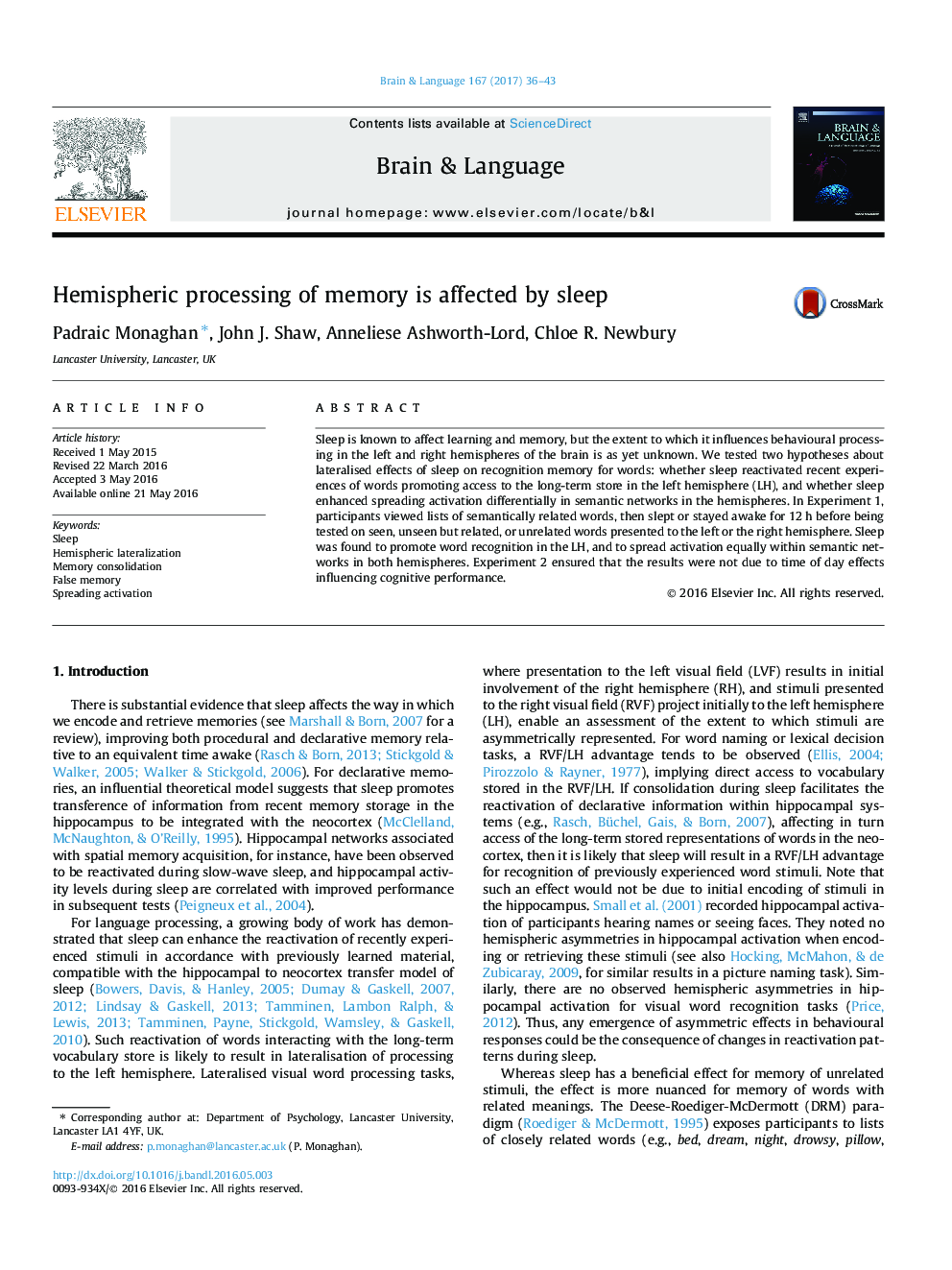| Article ID | Journal | Published Year | Pages | File Type |
|---|---|---|---|---|
| 5041375 | Brain and Language | 2017 | 8 Pages |
â¢Sleep and hemispheric processing interactions are explored.â¢Sleep shifts recognition memory of words to the left hemisphere.â¢Sleep boosts spreading activation in both the left and right hemisphere.â¢False memories resulting from sleep are not lateralised to left or right hemisphere.
Sleep is known to affect learning and memory, but the extent to which it influences behavioural processing in the left and right hemispheres of the brain is as yet unknown. We tested two hypotheses about lateralised effects of sleep on recognition memory for words: whether sleep reactivated recent experiences of words promoting access to the long-term store in the left hemisphere (LH), and whether sleep enhanced spreading activation differentially in semantic networks in the hemispheres. In Experiment 1, participants viewed lists of semantically related words, then slept or stayed awake for 12Â h before being tested on seen, unseen but related, or unrelated words presented to the left or the right hemisphere. Sleep was found to promote word recognition in the LH, and to spread activation equally within semantic networks in both hemispheres. Experiment 2 ensured that the results were not due to time of day effects influencing cognitive performance.
